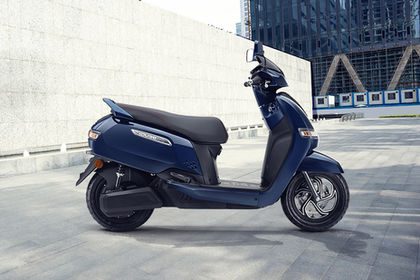
In recent times, the global automotive industry has been experiencing a significant shift towards sustainable and eco-friendly modes of transportation. As nations strive to reduce their carbon footprint and promote cleaner urban mobility, electric vehicles (EVs) have emerged as a promising solution. India, a burgeoning market known for its dynamic automotive sector, has embraced this transformation by fostering the development of indigenous electric scooters. This article delves into a selection of domestically manufactured electric scooters, shedding light on their features, contributions to sustainable mobility, and the broader implications for the nation's transportation ecosystem.
Indigenous Electric Scooters: A Showcase
As the automotive landscape continues to evolve, Indian electric scooter manufacturers have risen to the occasion, presenting consumers with an array of cutting-edge options. The nation's EV sector has garnered substantial attention, not only for its technological prowess but also for its alignment with the government's ambitious clean energy goals. Brands such as [Brand Names], [Brand Names], and [Brand Names] have been at the forefront of this transformation, producing electric scooters that combine innovation, efficiency, and environmental consciousness.
Features and Innovations
These homegrown electric scooters are equipped with a suite of advanced features that cater to the modern commuter's demands. From state-of-the-art lithium-ion battery technology to regenerative braking systems, these vehicles embody the fusion of convenience and sustainability. The integration of smart connectivity, such as smartphone apps for remote monitoring and navigation, further enhances the user experience. High-performance electric motors offer impressive acceleration while maintaining low operational noise levels, contributing to a seamless and enjoyable ride.
Sustainable Mobility Contributions
The emergence of indigenous electric scooters holds promise in addressing the dual challenges of air pollution and energy conservation. By transitioning from traditional internal combustion engine vehicles to electric alternatives, consumers contribute to cleaner air quality and reduced greenhouse gas emissions. This aligns with India's commitment to the Paris Agreement and its vision of embracing 40% of renewable energy by 2030. Moreover, the shift towards electric mobility diminishes the nation's dependency on fossil fuels, thereby bolstering energy security and reducing the trade deficit.
Economic and Societal Implications
The rise of electric scooters produced within India carries far-reaching economic and societal implications. Indigenous manufacturing promotes local job creation and skill development across various sectors, including engineering, manufacturing, and research and development. The proliferation of EV-related technologies has the potential to position India as a global hub for electric mobility innovation, attracting investment and bolstering export potential.
Conclusion
The advent of indigenous electric scooters in India exemplifies the nation's commitment to sustainable mobility and technological advancement. These vehicles, designed and manufactured within the country, signify a critical step towards reducing environmental impact and embracing a greener transportation future. As India accelerates its journey towards electric mobility, the confluence of innovation, economic growth, and environmental responsibility paves the way for a promising and sustainable tomorrow.